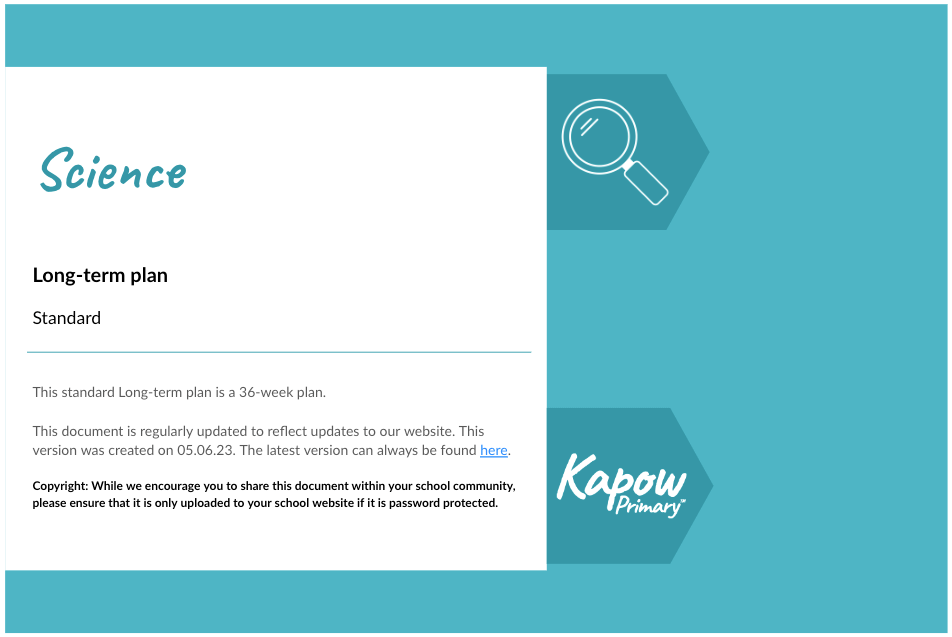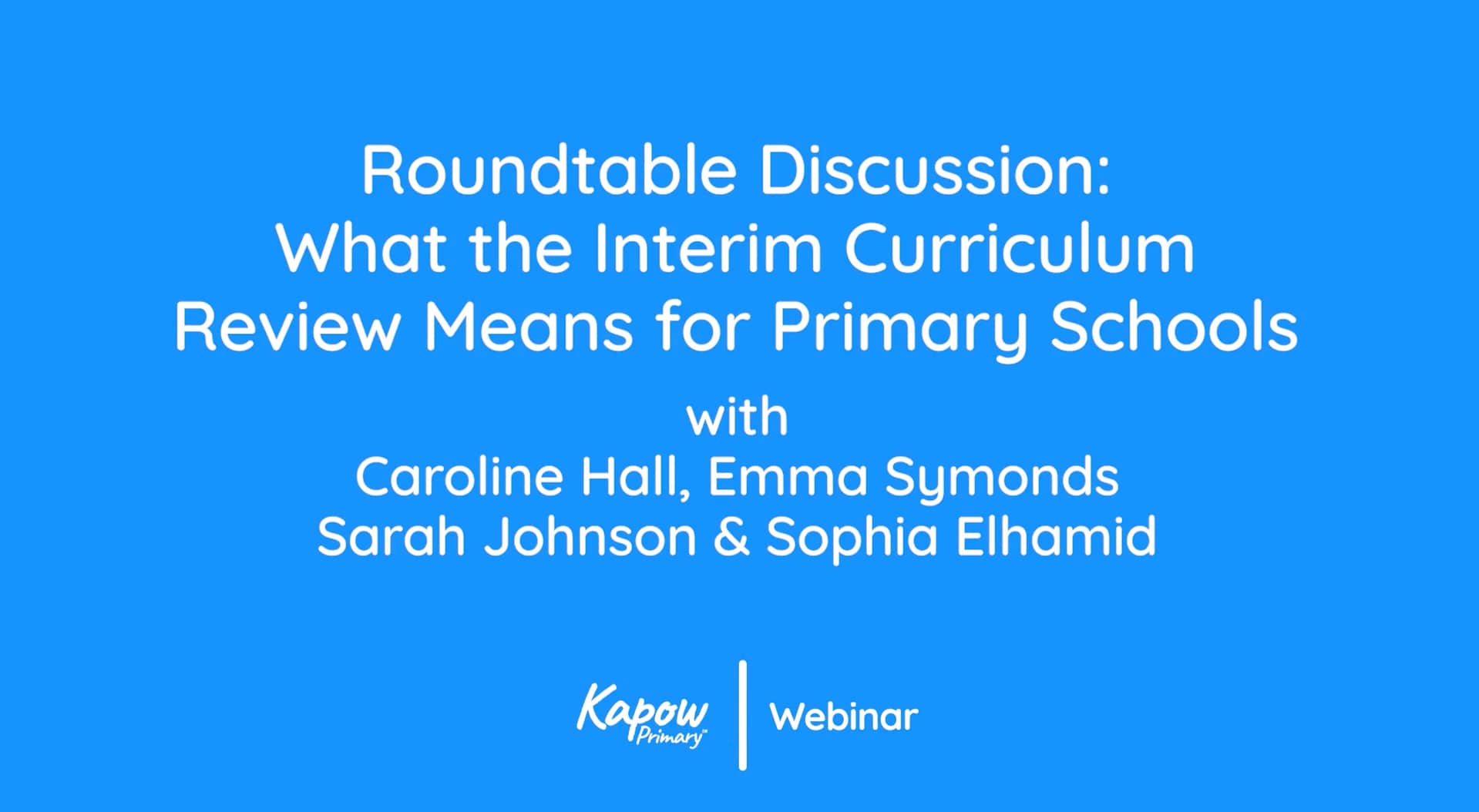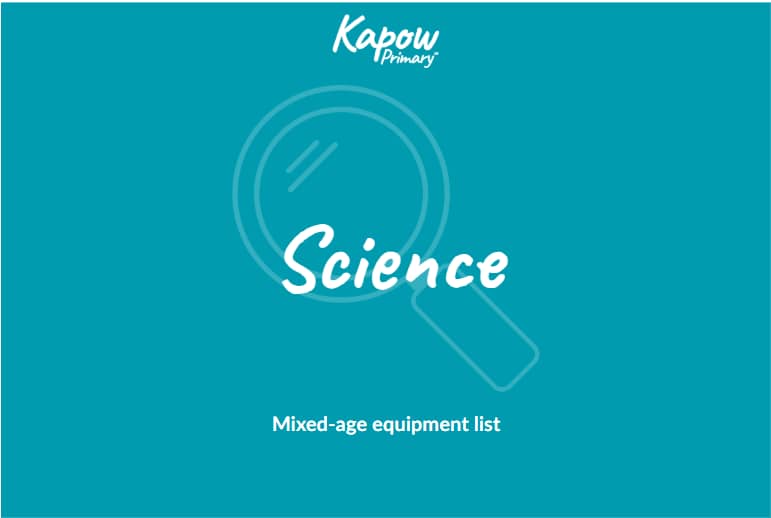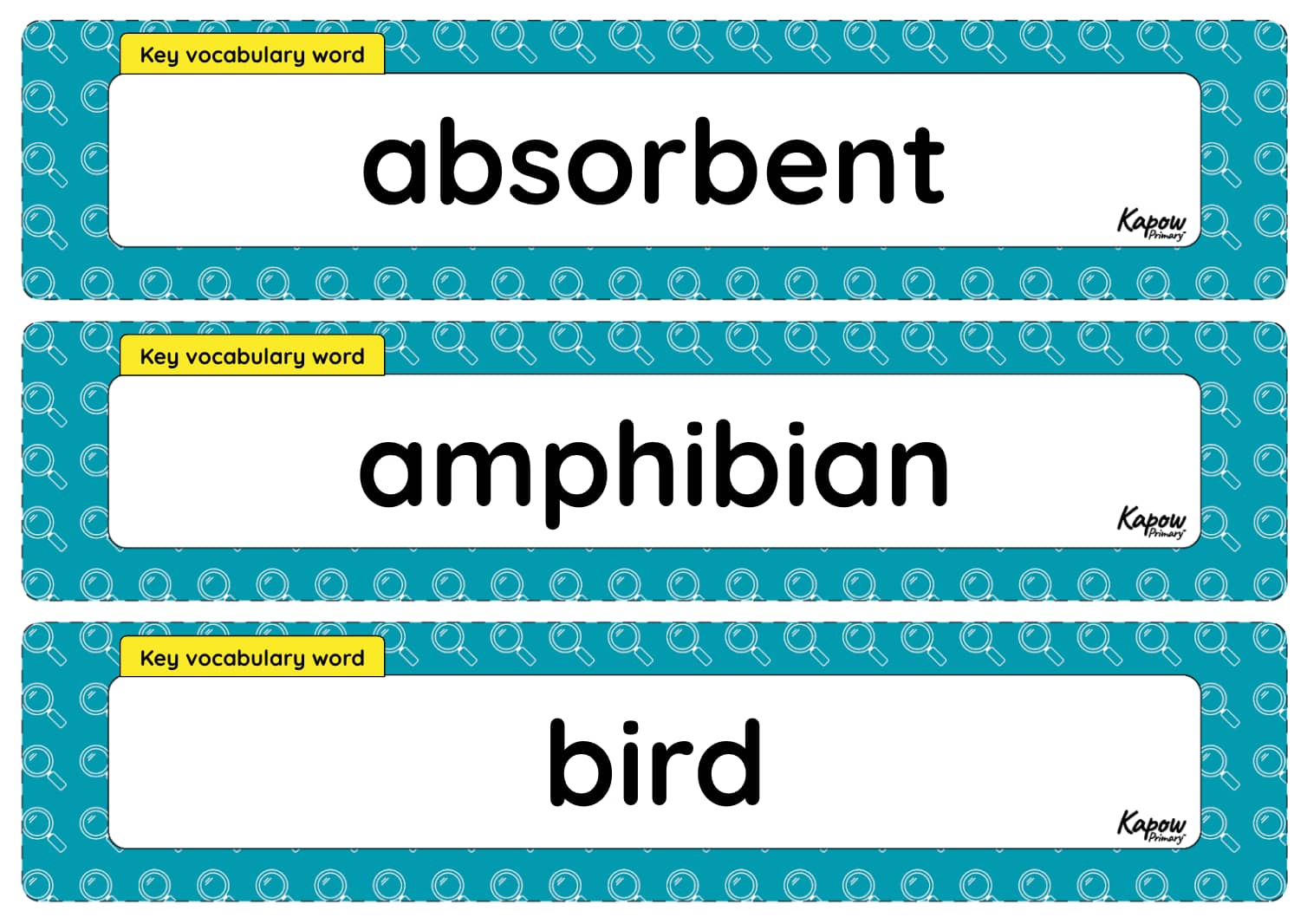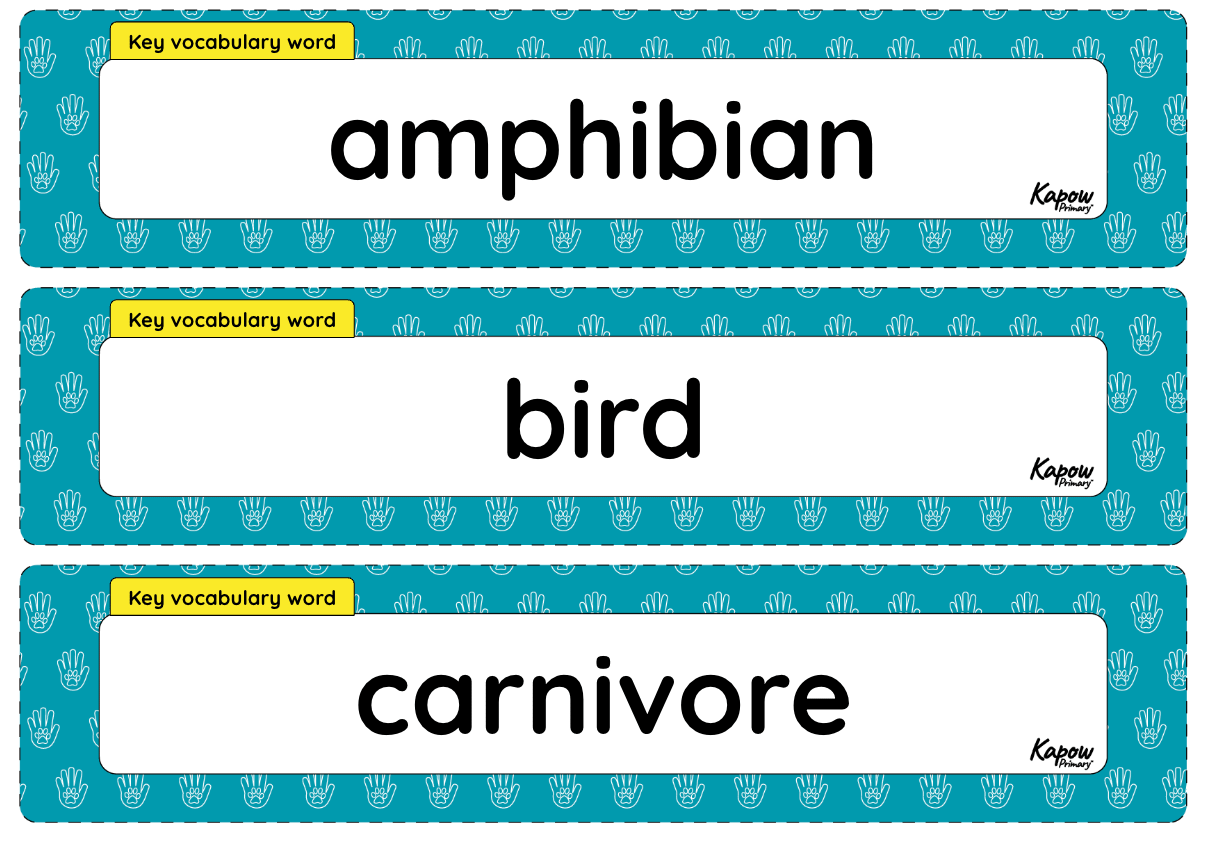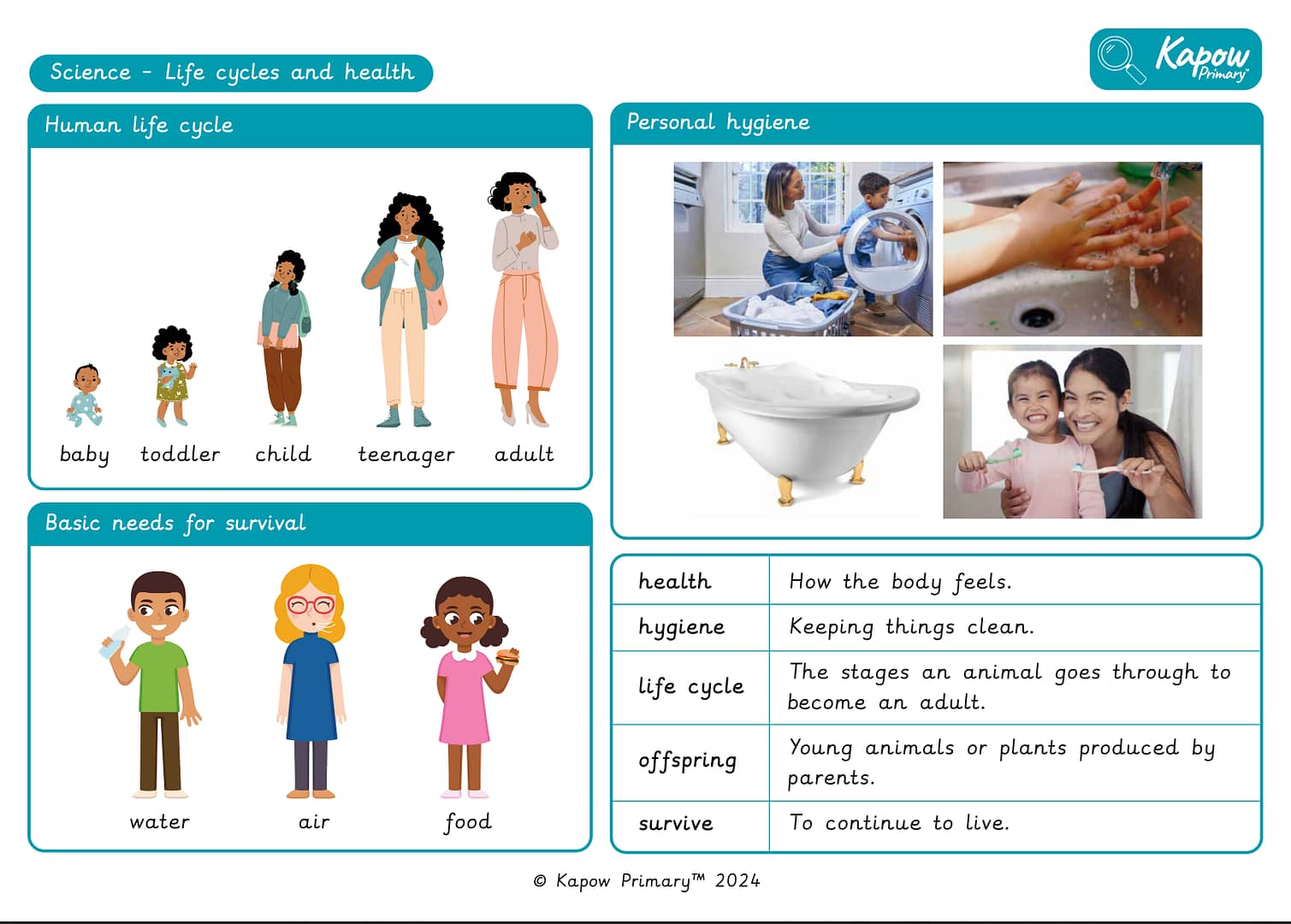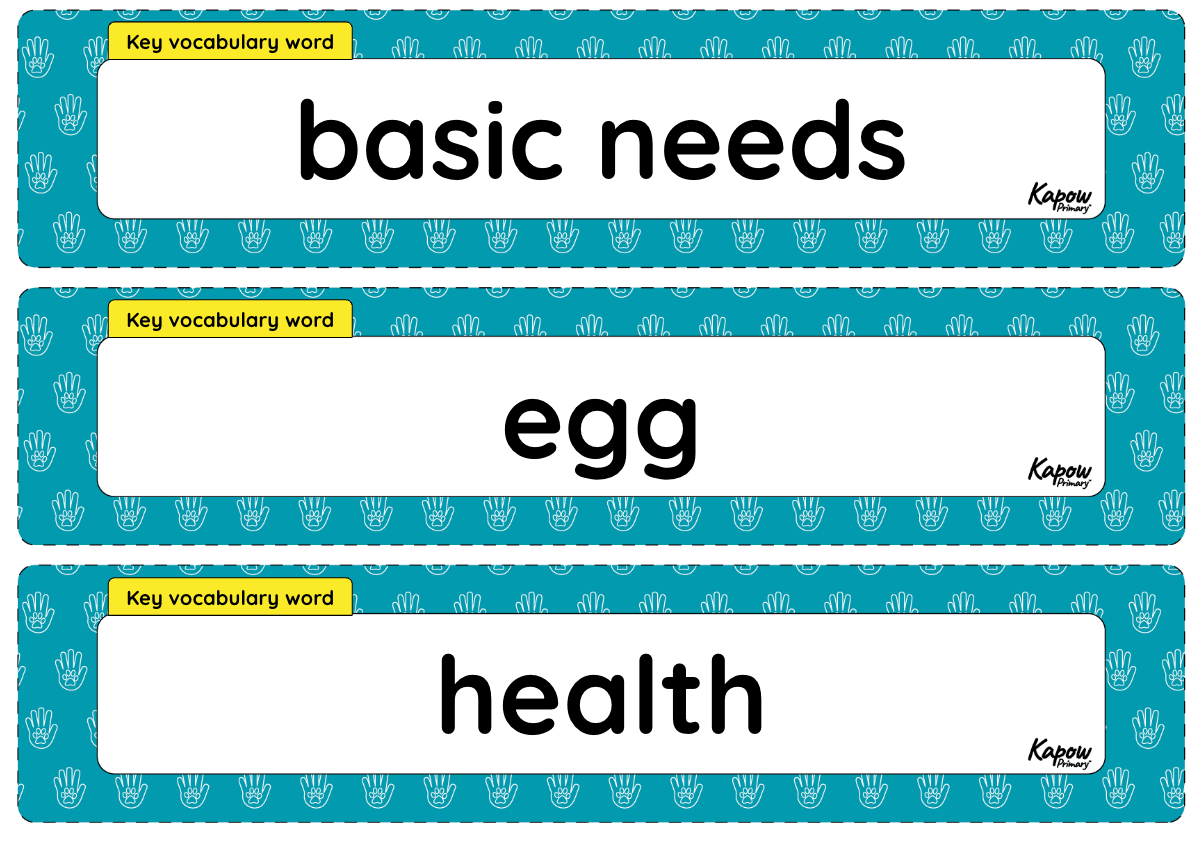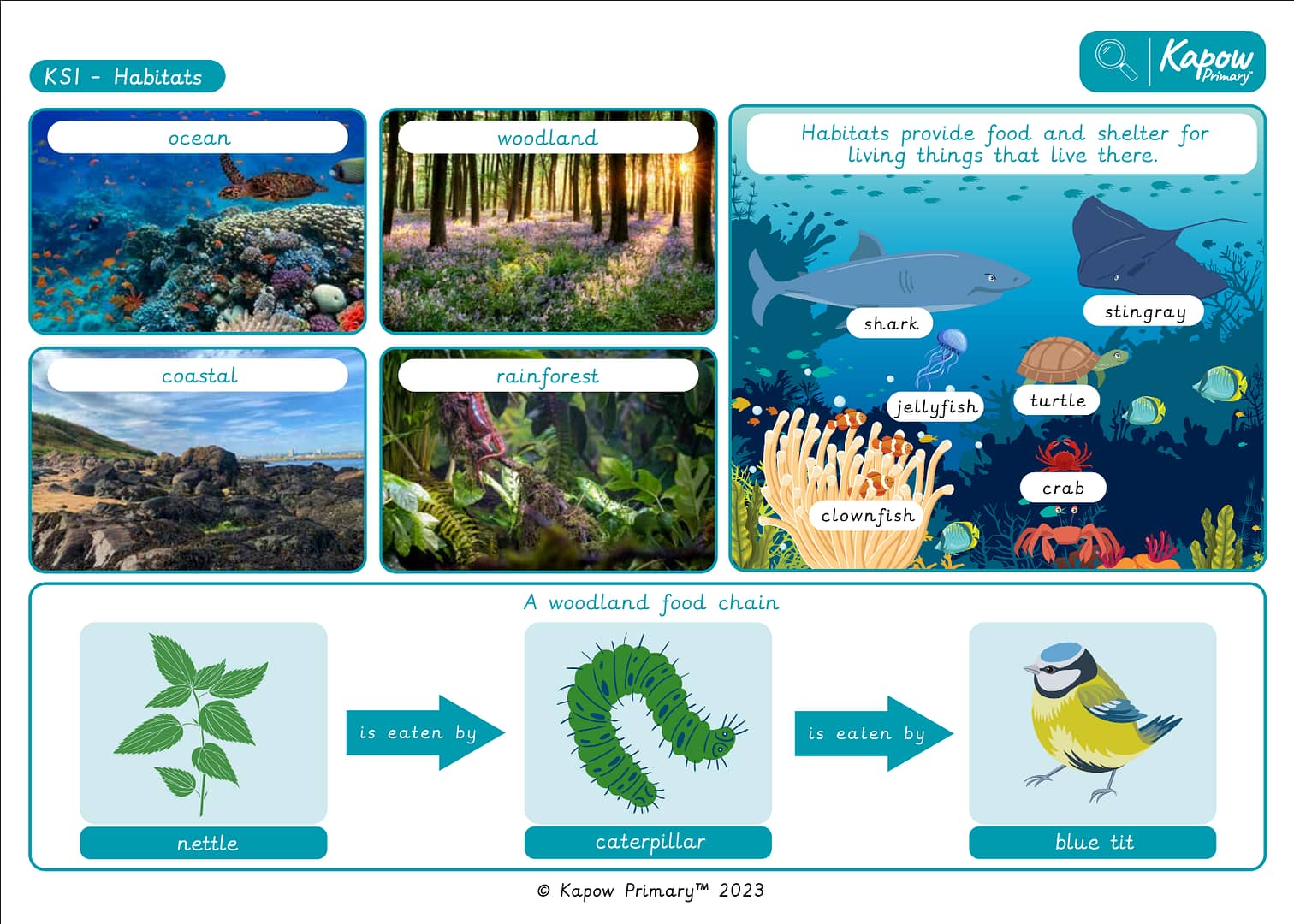Join Kapow Primary’s experts for a practical discussion on how to embed sustainability across your curriculum. Discover everyday classroom ideas, whole-school actions, and how to engage pupils with climate topics. Plus, get a preview of our new sustainability collection.
year: Year 2
Archived Science: Long-term plan
Webinar: What the Interim Curriculum Review Means for Primary Schools
Watch our expert panel break down the key proposals from the interim curriculum review and explore what they mean for planning, teaching, and subject leadership in primary schools. Perfect for classroom teachers, subject leaders and senior leaders.
Science: Equipment list — mixed-age
Vocabulary display – Science Y1/2 (B): Making connections: Fairytale science
This unit vocabulary display includes keywords from the mixed-age unit Science, Y1/2 (B), Making connections: Fairytale science and additional unit-specific words that may be helpful in a display.
Key vocabulary is clearly labelled on the display, highlighting essential words that the pupils are expected to retain and reuse in future units. Understanding these words enhances comprehension of the subject and supports understanding of key scientific concepts and processes.
See the full Science: Progression of key vocabulary.
Vocabulary display – Science Y1/2 (B): Animals, including humans: Comparing animals
This unit vocabulary display includes keywords from the mixed-age unit Science, Y1/2 (B), Animals, including humans: Comparing animals and additional unit-specific words that may be helpful in a display.
Key vocabulary is clearly labelled on the display, highlighting essential words that the pupils are expected to retain and reuse in future units. Understanding these words enhances comprehension of the subject and supports understanding of key scientific concepts and processes.
See the full Science: Progression of key vocabulary.
Knowledge organiser – Science Y1/2 (A): Animals, including humans: Life cycles and health
Vocabulary display – Science Y1/2 (A): Animals including humans: Life cycles and health
This unit vocabulary display includes keywords from the mixed-age unit Science Y1/2 (A): Animals including humans: Life cycles and health and additional unit-specific words that may be helpful in a display.
Key vocabulary is clearly labelled on the display, highlighting essential words that the pupils are expected to retain and reuse in future units. Understanding these words enhances comprehension of the subject and supports understanding of key scientific concepts and processes.
See the full Science: Progression of key vocabulary.
Knowledge organiser – Science Y1/2 (A): Living things: Habitats
A Knowledge organiser that captures the essential knowledge and skills learnt throughout the mixed-age unit Science, Y1/2 (A), Living things: Habitats.
This resource is designed to support the children as they explore different habitats. It highlights key vocabulary and concepts, including how habitats such as oceans, coastal areas, woodlands and rainforests provide food and shelter for living things. The resource introduces simple food chains to show how animals depend on one another for survival. It is perfect for consolidating essential knowledge and fostering an understanding of the relationships between plants, animals and their environments.


